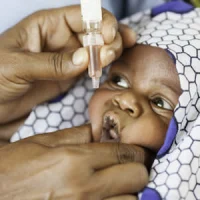According to the World Health Organization (WHO) in a statement on Friday, they confirmed over 80 cases of monkeypox in 11 countries. The outbreaks are occurring in countries where monkeypox is not endemic, which has raised concern. In Europe, cases have been observed in Belgium, France, Germany, Italy, Portugal, Spain, Sweden, and the UK. Cases have also been observed in Australia, Canada, and the U.S.
Monkeypox is a viral infection, endemic to West and Central Africa. Contact with infected individuals, animals, or virus-comminated objects can spread the contagion. Close physical contact is usually required. The virus enters the human body through broken skin, the respiratory tract, eyes, nose, mouth, and by bodily fluids. Most cases are mild and resemble chickenpox, but some variants can cause death in 10% of patients. The variant in circulation is more mild and thought to have a fatality rate of less than 1%. Symptoms include fever, body aches, enlarged lymph nodes, and a vesicular rash which can ulcerate, scab over, and leave pitted scars (i.e., "pox"). Infections can last up to 21 days.
Since the monkeypox virus is related to smallpox, the smallpox vaccine is 85% effective in preventing monkeypox. The U.S. Strategic National Stockpile has enough smallpox vaccine to vaccinate the entire U.S. population should the need arise. The U.K. is now stockpiling the vaccine but it unclear how much has been procured.
Regardless, the virus is considered to be poorly contagious. For instance, Prof Jonathan Ball, professor of molecular virology, University of Nottingham, points out: "The fact that only one of the 50 contacts of the initial monkeypox-infected patient has been infected shows how poorly infectious the virus is.” Most of the initial cases have been detected by sexual health services and had been among men who had sex with men.
Dr Hans Henri P. Kluge, WHO Regional Director for Europe emphasises that “Hand and respiratory hygiene, along with personal protective equipment and adequate isolation of suspected and confirmed cases are also critical to reduce transmission in healthcare settings - the measures we have all been following for COVID-19.”
Image credit: iStock










